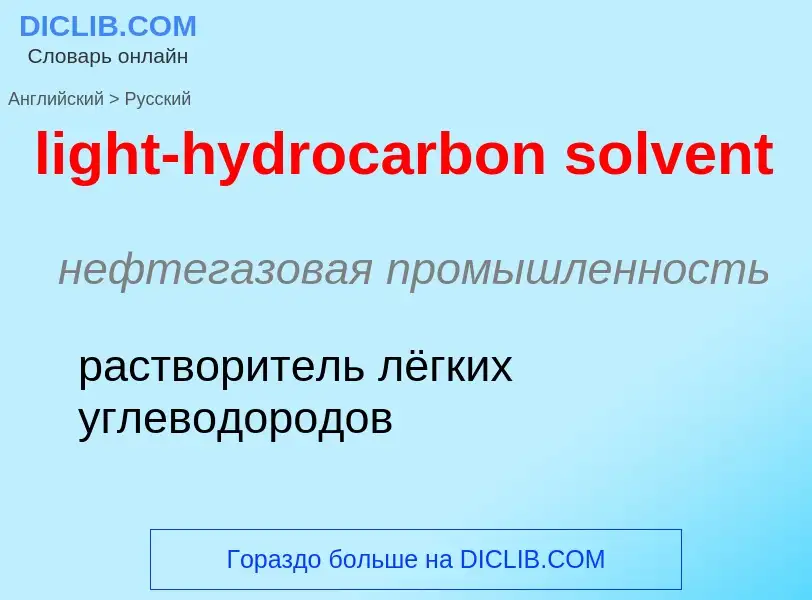Traduzione e analisi delle parole tramite l'intelligenza artificiale ChatGPT
In questa pagina puoi ottenere un'analisi dettagliata di una parola o frase, prodotta utilizzando la migliore tecnologia di intelligenza artificiale fino ad oggi:
- come viene usata la parola
- frequenza di utilizzo
- è usato più spesso nel discorso orale o scritto
- opzioni di traduzione delle parole
- esempi di utilizzo (varie frasi con traduzione)
- etimologia
light-hydrocarbon solvent - traduzione in russo
нефтегазовая промышленность
растворитель лёгких углеводородов
нефтегазовая промышленность
признак наличия углеводородов
['sɔlv(ə)nt]
общая лексика
растворитель
растворяющий
кредитоспособный
платежеспособный
растворяющее вещество
рафинатный
сольвент
Смотрите также
прилагательное
общая лексика
смягчающий
ослабляющий
разряжающий
платежеспособный
юриспруденция
платёжеспособный
кредитоспособный
химия
растворяющий
существительное
['sɔlv(ə)nt]
общая лексика
растворитель
отвлекающее средство
отдушина
редкое выражение
раствор
платёжеспособный человек
Definizione
Wikipedia

In organic chemistry, a hydrocarbon is an organic compound consisting entirely of hydrogen and carbon.: 620 Hydrocarbons are examples of group 14 hydrides. Hydrocarbons are generally colourless and hydrophobic; their odor is usually faint, and may be similar to that of gasoline or lighter fluid. They occur in a diverse range of molecular structures and phases: they can be gases (such as methane and propane), liquids (such as hexane and benzene), low melting solids (such as paraffin wax and naphthalene) or polymers (such as polyethylene and polystyrene).
In the fossil fuel industries, hydrocarbon refers to naturally occurring petroleum, natural gas and coal, or their hydrocarbon derivatives and purified forms. Combustion of hydrocarbons is the main source of the world's energy. Petroleum is the dominant raw-material source for organic commodity chemicals such as solvents and polymers. Most anthropogenic (human-generated) emissions of greenhouse gases are either carbon dioxide released by the burning of fossil fuels, or methane released from the handling of natural gas or from agriculture.


 Tank wagon 33 80 7920 362-0 with hydrocarbon gas at Bahnhof Enns.jpg?width=200)

![[[Oil refineries]] are one way hydrocarbons are processed for use. [[Crude oil]] is processed in several stages to form desired hydrocarbons, used as fuel and in other products. [[Oil refineries]] are one way hydrocarbons are processed for use. [[Crude oil]] is processed in several stages to form desired hydrocarbons, used as fuel and in other products.](https://commons.wikimedia.org/wiki/Special:FilePath/ShellMartinez-refi.jpg?width=200)


